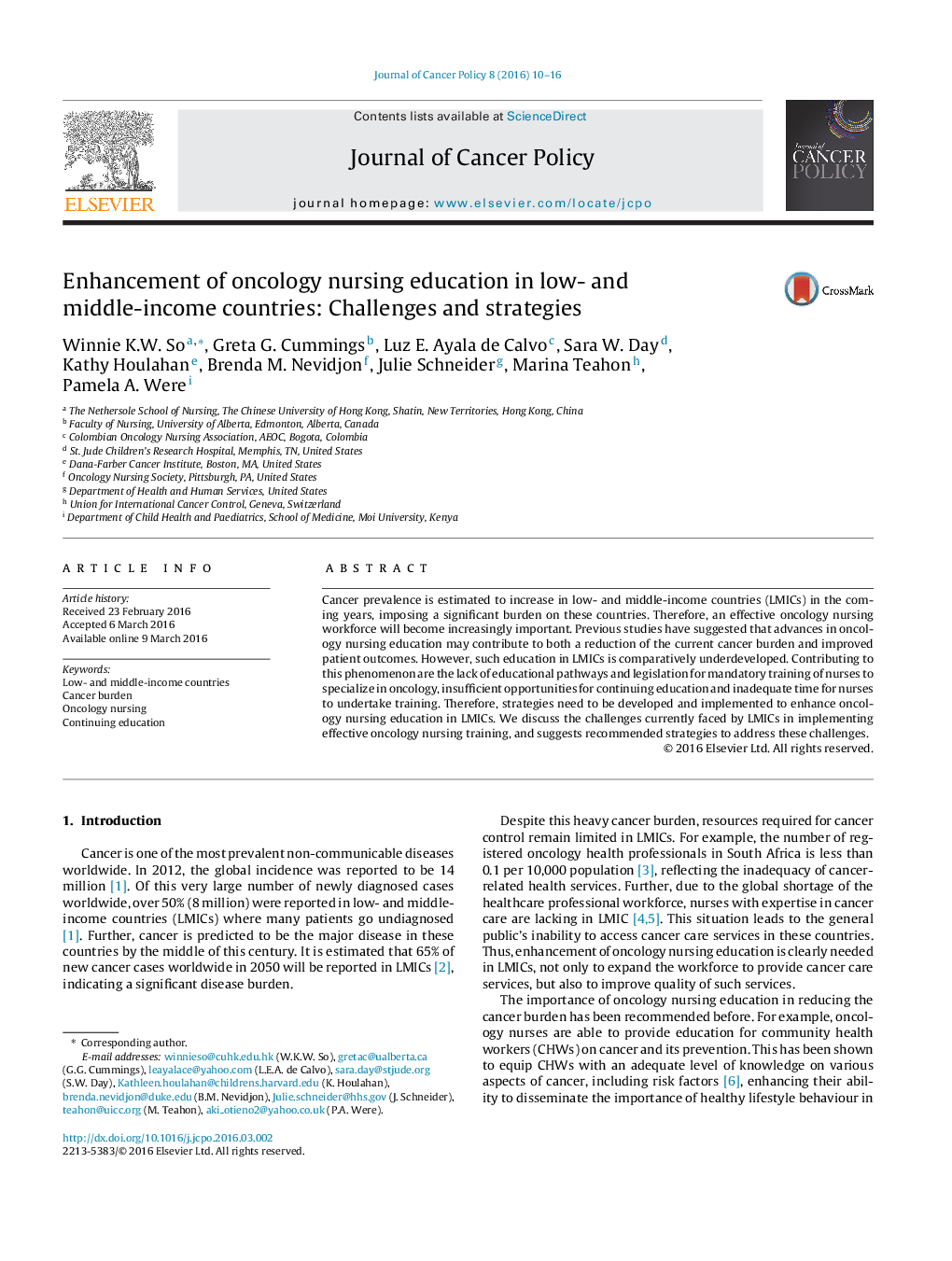| Article ID | Journal | Published Year | Pages | File Type |
|---|---|---|---|---|
| 3988707 | Journal of Cancer Policy | 2016 | 7 Pages |
•Enhancement of oncology nursing education is required in low- and middle-income countries (LMIC).•Challenges in implementing such education are insufficient educational pathways, a lack of legislation, and few available qualified teachers.•The involvement of professional organizations and international collaboration is needed to develop oncology nursing education programs.•LMIC governments must invest more resources in oncology nursing education in response to their increasing cancer burden.
Cancer prevalence is estimated to increase in low- and middle-income countries (LMICs) in the coming years, imposing a significant burden on these countries. Therefore, an effective oncology nursing workforce will become increasingly important. Previous studies have suggested that advances in oncology nursing education may contribute to both a reduction of the current cancer burden and improved patient outcomes. However, such education in LMICs is comparatively underdeveloped. Contributing to this phenomenon are the lack of educational pathways and legislation for mandatory training of nurses to specialize in oncology, insufficient opportunities for continuing education and inadequate time for nurses to undertake training. Therefore, strategies need to be developed and implemented to enhance oncology nursing education in LMICs. We discuss the challenges currently faced by LMICs in implementing effective oncology nursing training, and suggests recommended strategies to address these challenges.
